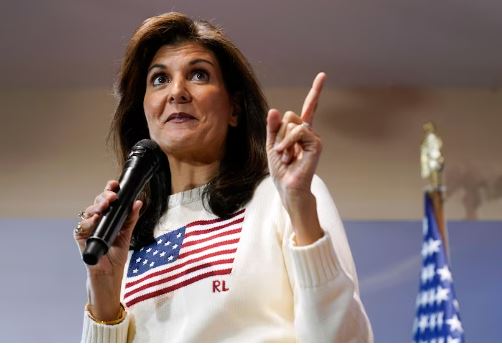Nikki Haley’s Complex Stance on Racism in America

Nikki Haley, the former U.S. Ambassador to the United Nations and a notable figure in American politics, recently made headlines with her conflicting statements regarding race in America. During the opening night of the Republican National Convention, Haley, a daughter of Indian immigrants, declared that America is not a racist country. However, in the same breath, she shared her family’s experiences of discrimination and hardship.
Haley’s narrative paints a complex picture of her life as an Indian-American in the U.S. She fondly recalled her parents’ journey to America and their struggles in a small southern town. Her father, a man who proudly wore a turban, and her mother, who adorned a sari, faced cultural and racial challenges. Despite these difficulties, Haley’s parents never succumbed to negativity. Her mother built a successful business, and her father devoted 30 years to teaching at a historically black college. These experiences shaped Haley into a prominent political figure, eventually leading her to become South Carolina’s first minority and first female governor.
Haley’s political journey was not without its racial encounters. During her 2010 gubernatorial campaign, she was derogatorily referred to as a “raghead” by a fellow Republican, Jake Knotts. This term, often used as a racial slur against those who wear head coverings like turbans, was also wrongly used to describe former President Barack Obama. Haley has also spoken about being bullied as a child due to her Indian heritage, highlighting the racial challenges she faced.
Despite these personal experiences with discrimination, Haley stands firm in her belief that America is not inherently racist. She attributes this to the progress and opportunities that the country has offered her and her family. Haley’s perspective aligns with her political stance, often clashing with the Democratic Party’s views on America’s racial issues.
In her speech, Haley acknowledged the Black Lives Matter movement, underscoring the importance of every Black life. She emphasized America as a work in progress, a nation striving to become freer, fairer, and better for everyone. Her acknowledgment of personal experiences with racism juxtaposed with her dismissal of America as a racist country sparks a broader discussion on the complexities of race in America.
Nikki Haley’s story and her conflicting statements on racism reflect the multifaceted nature of racial identity and politics in the United States. Her personal narrative, interwoven with her political beliefs, presents a unique perspective on the ongoing dialogue about race in America.




